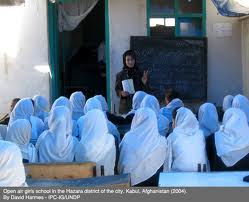Was the Washington Consensus right?
Michael Clemens and co-authors have just won this year’s Royal Economic Society Prize for a paper on aid’s role in pushing economic growth (ungated version here). It turns out that contrary to previous findings that aid and growth are unrelated, if you allow plenty of time for their results to kick in, certain types of aid do have positive impacts.
With African economies by all accounts booming in the past few years, this got me wondering whether the widely criticised structural adjustment programmes that were imposed on Africa in the 1980s and 1990s in return for World Bank and IMF loans might also come out looking slightly rosier if a time lag were allowed for. With the continent’s recent rise attributed by many to the improvements in macroeconomic policies that structural adjustment aimed to trigger, it may be time for a new look at a policy that most development professionals have written off, and an interesting challenge, too, for economists wanting to win next year’s prize.

